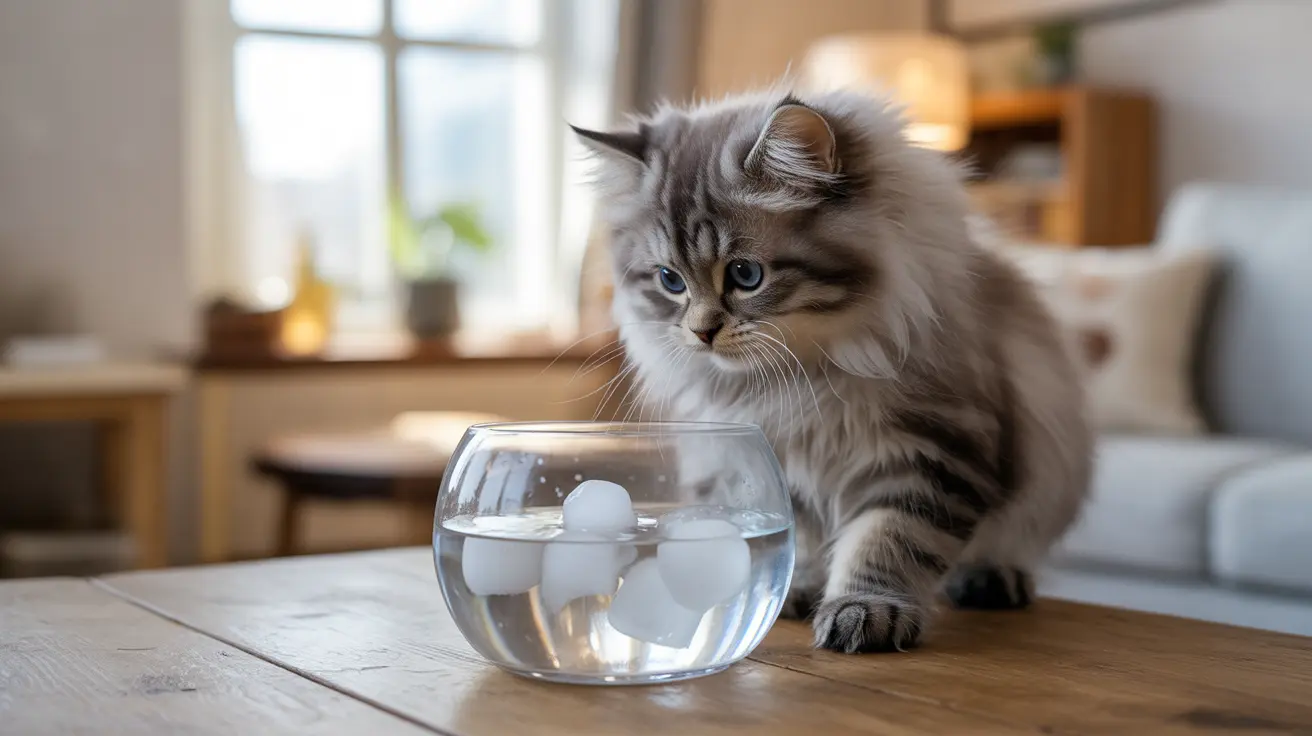The Safety of Ice Water for Cats
Contrary to common misconceptions, ice water is generally safe for cats. Clean, fresh ice cubes made from pure water pose no inherent health risks to most cats. However, there are some important safety considerations to keep in mind:
Size and Texture Matters
When adding ice to your cat's water, opt for smaller pieces or crushed ice rather than large cubes. This reduces any potential risks of:
- Dental damage from aggressive chewing
- Choking hazards, especially for smaller cats
- Difficulty drinking around large ice pieces
Temperature Considerations
While cats can safely consume cold water, extreme temperature changes might cause discomfort. Some cats may experience:
- Temporary brain freeze sensation
- Mild digestive sensitivity
- Initial hesitation to drink very cold water
Benefits of Offering Ice Water to Cats
Enhanced Hydration
Many cats show increased interest in water when ice is added, leading to better hydration. The moving ice cubes can stimulate their natural attraction to running water, encouraging more frequent drinking.
Cooling Effects
During hot weather, ice water provides an excellent way to help cats regulate their body temperature. This can be particularly beneficial for:
- Long-haired cats
- Cats in warm climates
- Indoor cats without access to natural cooling spots
Best Practices for Serving Ice Water
Proper Introduction
When first offering ice water to your cat:
- Start with just one or two small ice cubes
- Monitor your cat's reaction
- Gradually increase the amount if well-received
- Always provide an alternative water source at room temperature
Bowl Selection and Placement
Choose appropriate containers for ice water:
- Use ceramic or stainless steel bowls
- Avoid plastic containers that might affect taste
- Place bowls away from direct sunlight
- Consider multiple water stations throughout your home
When to Avoid Ice Water
While generally safe, there are situations when ice water isn't appropriate:
- During episodes of heat stroke (seek veterinary care instead)
- For cats with sensitive teeth or dental issues
- When cats show clear aversion to cold water
- If your cat has certain medical conditions (consult your vet)
Frequently Asked Questions
Is it safe for cats to drink ice water or eat ice cubes?
Yes, cats can safely drink ice water and consume ice cubes made from clean water. However, it's best to use small pieces or crushed ice to prevent any potential choking hazards.
Can ice cubes cause dental damage or choking in cats?
While the risk is generally low, large ice cubes could potentially cause dental damage if chewed aggressively. Using crushed ice or small cubes eliminates this risk and prevents choking hazards.
Why do some cats prefer chilled water or ice cubes over room temperature water?
Many cats are attracted to moving water, and ice cubes create movement that captures their attention. Some cats may also find cold water more refreshing, especially in warm weather.
How should I introduce ice cubes to my cat's water bowl safely?
Start with one or two small ice cubes and observe your cat's reaction. Always provide an alternative water source at room temperature and gradually increase the amount of ice if your cat shows interest.
Can giving my cat ice water help prevent dehydration or overheating during hot weather?
Yes, ice water can help prevent dehydration by making water more appealing to cats and can assist in cooling them during hot weather. However, it should not be used as the sole method for treating heat stroke or severe dehydration.
Remember, while ice water can be a safe and enjoyable addition to your cat's hydration routine, every cat is different. Pay attention to your pet's preferences and consult with your veterinarian if you have specific concerns about your cat's hydration needs.






